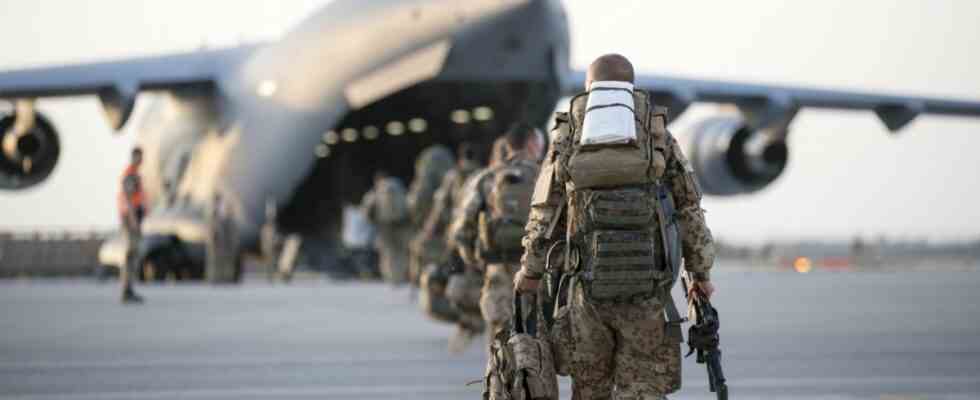As a witness before the Afghanistan investigative committee, a diplomat justified Germany’s hesitation in rescuing local workers with concerns about a “domino effect”. Gregory Bledjian, Deputy Ambassador in Kabul until mid-June 2021, explained to MPs on Thursday that bringing local workers out of the country on a large scale would have meant that the Bundeswehr and the organizations working in the country would have stopped their stabilization measures have to. This would have been taken by the partners as a signal that the Germans were leaving the country and would probably have prompted them to leave as well. During his time at the embassy, the evacuation was “not an option” that you would have advocated.
The committee of inquiry is to clarify how it was possible that Germany, in alliance with its western partners, was so obviously surprised by the developments in Afghanistan. The withdrawal in 2021 resulted in a debacle. In August, the Bundeswehr had to fly German citizens and people in need of protection out of Afghanistan in a risky rescue operation after the Taliban regained control of the country. For thousands of local workers, the help came too late. They stayed behind in the country.
He did not expect such a rapid collapse, said the diplomat
The committee’s meeting on Thursday confirmed that long before the fall of Kabul in August, the possibility that the Taliban could take power in the country had to be expected. A clear trend was already discernible in spring 2020, said the diplomat: “The security situation has steadily deteriorated.”
Gregory Bledjian stated that he was in regular contact with the military leaders. At the beginning of June 2021, the Americans informed him that even Kabul was no longer considered 100 percent secure. This emerges from the files that the deputies in the committee held in front of him. A storming of Kabul was classified by the diplomat as “unlikely in the next few months”. He said before MPs that he had not expected such a rapid collapse.
In his capacity as security officer at the embassy, he said he was prepared for evacuations early on. He would have had such plans in the drawer in the summer of 2021. At the end of 2020, the embassy requested a crisis advisory team from Berlin to discuss security issues. Evacuation plans were then worked on. There was also a “long list of homework”. Among other things, an agreement had to be reached with the Americans that the Germans could use their helicopters in an emergency.
“You did what you could do before,” said the diplomat, who left the country in mid-June 2021. However, he also explained that the rescue plans focused on the embassy staff, several dozen people, but by no means thousands of local staff and their families.

